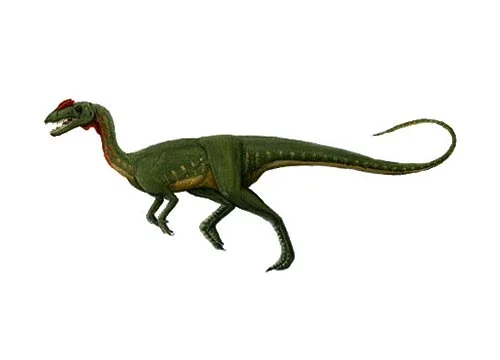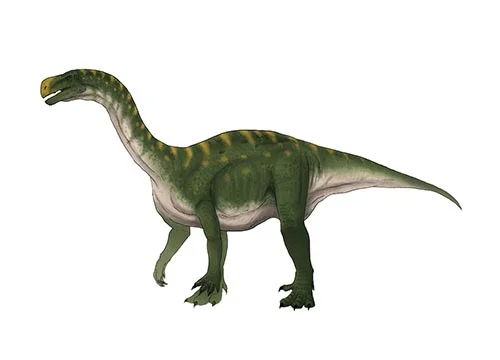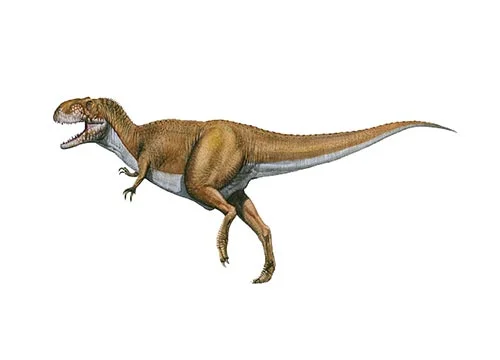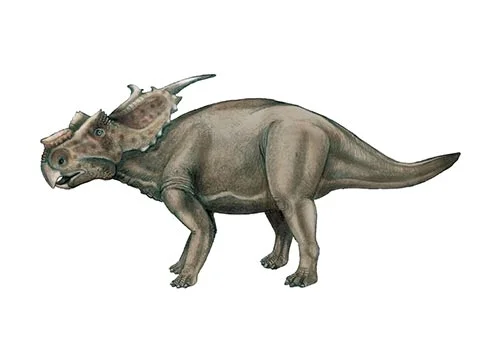Syntarsus (fused tarsus)

sin-tar-sus
M. A. Raath – 1969
Carnivore
Estimated 2-3 meters long
Small Theropod
S. rhodesiensis (type)
South Africa, USA, Zimbabwe
Early Jurassic, 199-196 million years ago
Syntarsus Facts
Syntarsus is a genus of theropod dinosaur that lived in what is now South Africa during the early Jurassic period, around 199-196 million years ago. It was first described in 1978 by paleontologist Peter Galton.
Syntarsus is a small to medium-sized predator, estimated to have been about 2 to 3 meters in length and weighing up to 100 kilograms. It is classified as a coelophysoid, a group of early theropods known for their slender build and long, narrow snouts.
One of the distinguishing features of Syntarsus is its fused tarsus, which is the group of bones in the ankle that connects the foot to the leg. This feature is unique among theropods and gives the dinosaur its name, which means “fused ankle” in Greek.
Despite its small size, Syntarsus was likely an efficient predator, using its sharp teeth and powerful legs to catch and kill small prey. It may have hunted in packs, as some fossilized footprints from the same area and time period show several individuals traveling together.
Overall, Syntarsus is an interesting and important dinosaur for paleontologists studying the early evolution of theropod dinosaurs and their various adaptations for predation.



